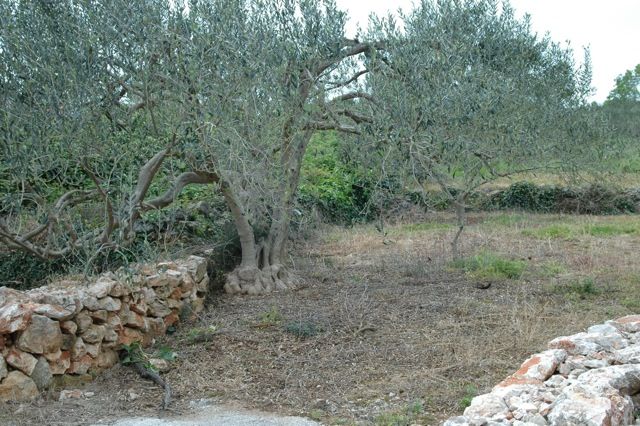On December 1st 2015, Glyphosate, the active ingredient in Roundup and many other herbicides, will be the subject of a discussion in the EU Parliament.
The timing of the meeting is interesting. It clashes with the global summit starting in Paris on Monday November 30th, which will capture the media headlines and deflect interest from the glyphosate debate. Dealing with glyphosate properly is a matter of immediate urgency in the public interest.
Glyphosate-based herbicides are used around the world in gardens, parks, roadways and commercial agriculture. Common versions used in Croatia are Cidokor and Ouragan. The EU Committee for Environment, Public Health and Food Safety - happily better known by its abbreviation ENVI - will take part in an Exchange of Views (EoV) about glyphosate with the EU Commission, the WHO (World Health Organisation) International Agency for Research on Cancer (IARC) and the European Food Safety Authority (EFSA).
The main issue to be discussed is whether or not glyphosate has been shown to be a potential cause of cancer in humans. WHO IARC issued a report on March 20th 2015 stating that glyphosate is “probably carcinogenic to humans”, while EFSA's report, published on November 12th 2015, concludes the opposite, asserting that glyphosate is “unlikely to pose a carcinogenic hazard to humans and the evidence does not support classification with regard to its carcinogenic potential according to Regulation (EC) No 1272/2008”.

Much is at stake. The discussion is aimed at helping the Commission when it comes to making its decision on “whether or not to keep glyphosate on the EU list of approved active substances”. Glyphosate is big business. Originally patented by American agrochemical giant Monsanto and first marketed in 1974, the patent was allowed to lapse in 2000, when Monsanto had established its Roundup-ready genetically modified seeds and crops in the international market, following their introduction in 1996. Other companies were then able to produce glyphosate-based herbicides, which are sold in unimaginable quantities worldwide. After publishing articles about the herbicide on its website, our registered charity Eco Hvar received apparently serious offers of partnerships from glyphosate suppliers as far apart as Uganda and China.
Following the publication of the WHO report, many countries imposed restrictions on the sale of glyphosate products to the public. Bermuda went further and suspended all imports of glyphosate and glyphosate-based herbicides.
Is glyphosate proven safe?
No, despite Monsanto's continued assurances. How can a poison be considered safe? It can't be tested on humans, that would provoke outrage. The hundreds of animals which have been force-fed glyphosate in laboratories are no proof of what happens when glyphosate is mixed up for application in the environment. Glyphosate received approval from the American Environmental Protection Agency (EPA) mainly on the basis of research studies which were sponsored by the producers. Most were never published in peer-reviewed journals. The few published articles submitted in support dealt mainly with protocols for dealing with the hapless animals subjected to the poison to see how much would do them harm. Glyphosate was reregistered by the EPA in 1993. Supporting documentation for the approval included some 228 unpublished papers submitted by Monsanto.
Is glyphosate linked to cancers?
Yes, this showed up in some of the animal testing, and was confirmed in the WHO report.
Why is research linking glyphosate to cancer risks not respected?
The results are respected by those who are guided by true scientific principles. But credible science has been undermined by the profit motive. There have been cover-ups. There is determined lobbying. All those who have vested interests in selling glyphosate products have mounted virulent campaigns to neutralize any reports suggesting glyphosate is not safe. The most notorious case involved a study by Gilles-Eric Séralini and his team showing several adverse effects of Roundup and genetically modified maize on rats, including tumour formation. Published in 2012, the research paper was retracted by the journal's editor in 2013. The authors stood by their results, and scientists rallied behind the authors. The paper was re-published in 2014.
Is glyphosate generally safe apart from the possible risk of cancers?
No. Glyphosate has been shown to have very many health risks, as well as causing damage to the environment. Glyphosate works by inhibiting the shikimic acid pathway in plants. It was claimed that this pathway did not exist in humans. However, it has been shown that it does exist in the human gut, which is vital to good health. Disturbance of the gut mechanisms is linked to a whole raft of problems and diseases.
Pro-glyphosate reports? barely credible
A review carried out by EU rapporteur state Germany and submitted to the European Food Safety Authority in January 2014 concluded that glyphosate posed no major risks to human health. This raised strong public protest, and there was an even stronger reaction against EFSA's report in November 2015, which was largely based on the 2014 EU report, and obviously produced to counter the WHO IARC's measured stance. The strength of the public disapproval is not surprising, given the wealth of evidence that glyphosate is hazardous.

The Exchange of Views
The EU's environmental committee consists of some 139 members, including two from Croatia: Marijana Petir of the Christian Democrats group, and Davor Škrlec of the Greens/European Free Alliance group. Fingers crossed that the committee members don't fall for the blandishments or bullying tactics of the pro-glyphosate lobby. Most people, when pressed, define good health as their biggest priority, way ahead of wealth. The health of millions will continue to be in jeopardy if glyphosate's approval for use in the European Union is extended.
© Vivian Grisogono 2015


